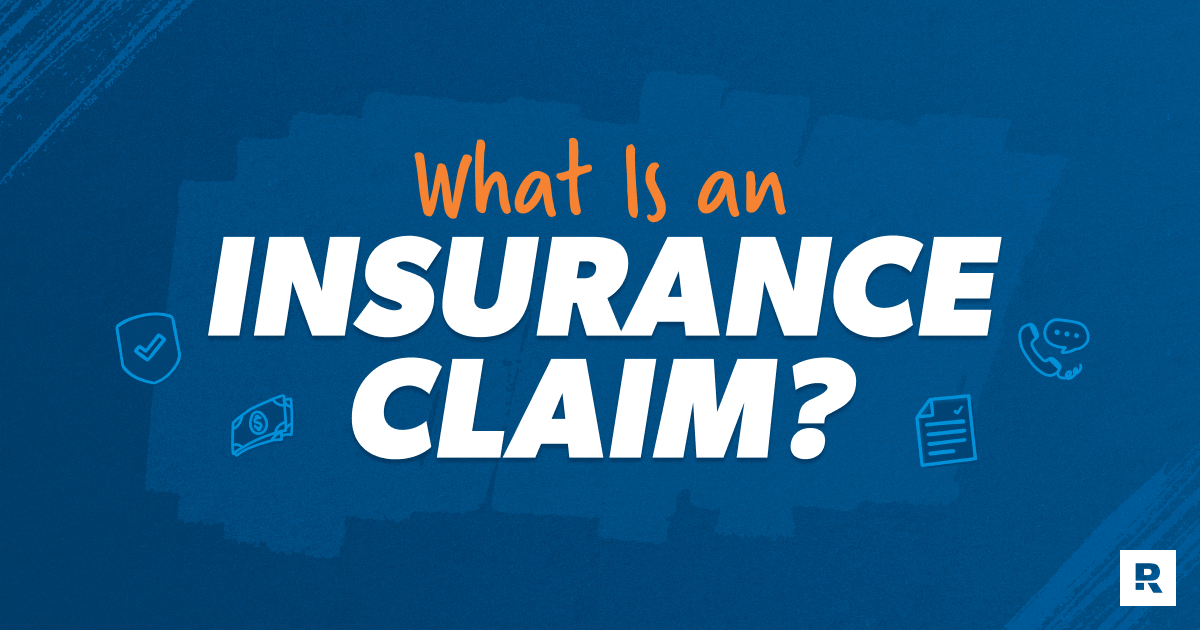
Key Takeaways
- An insurance claim is a formal request you make to your insurance company asking them to help pay for a loss or expense that your policy covers.
- There are many types of insurance claims—including auto, health, home, life and renters—and knowing what your policy covers is crucial before filing.
- Filing a claim involves documenting information and communicating with the insurer (and possibly an adjuster). The process differs depending on the type and complexity of the incident that prompted the claim.
- Claims often lead to premium increases, especially with multiple filings.
- The whole claim process can take several months or more, but knowing how the process works and keeping detailed records can make it smoother and less stressful.
An insurance claim is filed when the insured person (that’s you) experiences a loss and wants to get reimbursed for costs related to it. So yeah, it probably won’t be the best day of your life when you have to submit your own insurance claim (hopefully that’s not today!).
Home and auto insurance aren’t just about low rates—they’re about the right coverage level. Talk to a trusted pro who can help you get both.
But let’s look at insurance claims in more detail so you’ll be prepared when the time comes.
What Is an Insurance Claim?
An insurance claim is a formal request you make to your insurance company asking them to help pay for a loss or expense that your insurance policy covers.
The purpose of an insurance claim is to get financial help when the unexpected happens.
Here’s what’s involved in a claim:
- Insurance policy: a legal contract between an individual and an insurance company outlining who’s responsible for paying what after a covered event
- Policyholder: the person who owns the insurance policy
- Insurer: the insurance company providing the coverage
Types of Insurance Claims
For each type of insurance, there’s a claim to go along with it. Here are a few examples:
- Auto insurance claims: coverage for vehicle damage or theft
- Homeowners insurance claims: protection against damages to your home due to events like fires or storms
- Health insurance claims: reimbursement for medical services and treatments
- Life insurance claims: payouts to beneficiaries upon the policyholder's death
- Renters insurance claims: coverage for theft of or damage to personal items
When to File an Insurance Claim
Generally, when the amount to be covered is more than a few hundred bucks over your deductible (the amount you’re responsible to cover before insurance kicks in), that’s when you file a claim.
You’ll need to submit a claim for things like accidents, natural disasters or medical events. And of course you can only make a claim with your insurance company for things covered by your policy—and policies don’t cover everything that might happen. For example, if you have homeowners insurance and your house gets flooded from the nearby creek, you can’t make a claim because standard homeowners policies don’t cover flooding. But if a storm blows a tree limb onto your roof and damages it, you can make a claim for that.
One caveat: With medical insurance, you don’t usually file the claim. Instead, your provider submits it to the insurer by basically sending them a bill outlining all the services they provided and how much they cost. Then you receive a bill from the provider for the part you’re responsible to pay (the deductible, any copays and sometimes services your policy doesn’t cover).
How Insurance Claims Work
This is the meat and potatoes of insurance right here: filing the claim and getting the payout.
Steps to File an Insurance Claim
Most companies will let you file a claim online through a portal or app. You can also do it over the phone with your insurance agent.
The types of paperwork or evidence you’ll need to include with your claim will depend on the type of insurance you’re claiming.
But here are the basic steps for submitting a claim:
- If possible (in the case of an auto accident, for example), get photos of whatever the damage is. Take detailed notes and write down the contact information of any other people involved.
- Contact the insurance company (if it’s a car accident where the other person is at fault, contact their insurance company). Ask the company what you’ll need to provide to file a claim.
- For a homeowners insurance claim, you’ll need to fill out a Proof of Loss statement. For a life insurance claim, you’ll need to provide a certified copy of the death certificate. The insurance company may also have a claim form you’ll need to fill out.
- Actually file the claim.
Working With Adjusters
After you file your claim, you may have to work with an insurance adjuster. They’ll look at the damage caused by the incident to figure out how much the insurance company should pay. Since an adjuster is basically an investigator who works for the insurance company, they’ll typically recommend the smallest dollar amount possible.
Remembering these tips can help when you’re working with an insurance adjuster:
- Document all interactions with the adjuster.
- Always be present when they’re inspecting.
- Be honest about the damage.
- Don’t be afraid to ask clarifying questions.
- Be prepared to negotiate because the adjuster’s first offer will probably be low.
Payouts
Payout options are extremely varied, and they also depend on what kind of insurance reimbursement is being provided.
Options include:
- Checks
- Direct deposits
- Payments directly to service providers such as repair companies and medical clinics
- Installments
- Interest on principal (this is where the insurance company keeps your payout and only pays you interest on the sum—not recommended)
Also, your deductible amount will affect your payout amount. The higher your deductible, the smaller your payout will be.
Claim Timelines
There are a few timelines involved in claims. You’ve got the time limit for filing a claim, the time limit for the insurance company to investigate the claim, and the time frame for resolution and (hopefully!) payment.
Here's A Tip
With homeowners insurance, there’s a deadline to submit the Proof of Loss document. If you miss it, you could miss out on a payout. Life insurance, on the other hand, has no deadline to submit a claim.
How Long Does an Insurance Company Have to Investigate a Claim?
Typically, insurance companies have 30–60 days to investigate a claim after it’s been made. If they need more time, they have to give a reason and submit regular updates.
How Long Does an Insurance Claim Take to Resolve?
How long it takes to settle a claim depends on how straightforward the claim is. If there are no disputes or negotiations and the case isn’t complex, it can take as little as a few weeks. But throw a dispute in there or a question about who’s liable, and you could be looking at several months or more.
|
Typical Insurance Claim Timelines |
||
|---|---|---|
|
Filing |
30 days–1 year |
With homeowners insurance, you sometimes have up to a year to submit a claim. |
|
Investigation |
30–60 days |
Adjusters are limited on how long the investigation can take. |
|
Negotiation |
From a few weeks up to several months or more |
If there is any back-and-forth or dispute, the time frame can stretch out. |
|
Payment |
A couple of weeks |
After the final dollar amount has been decided, it can take a couple of weeks for the payment to arrive. |
Will Your Insurance Rates Go Up After You File a Claim?
The bummer is that if you file an insurance claim, your rates will probably go up at your next policy renewal—unless it’s life insurance. And it doesn’t matter if the incident that prompted the claim was your fault or not. The more often you file a claim, the riskier you look to the insurance company. Maybe the color of your car blends in with the color of the road, making your car less visible and more likely to get hit. Or maybe your neighborhood has tanked and its crime rate is increasing. Any of these factors—and others—still mean you could be calling on the insurance company more often.
Sometimes an insurer will forgive the first accident, but be prepared for possible premium increases if you file a claim.
Tips to Make the Claim Process Easier
Dealing with insurance can feel like a lot to handle, but there are some ways to make the whole process a little easier.
Here are some tips:
Understand your policy before you need it. Know what you’re covered for and what’s excluded.
Be proactive and honest. Contact your insurance company ASAP after an incident, and don’t exaggerate or minimize what happened. If the living room flooded, don’t say the office flooded too just because you want to replace the hideous carpet in there.
Keep detailed records. Document all details and damage, as well as interactions with those involved— including the adjuster and insurance agent handling your case. Make sure you keep all paperwork until your claim is fully settled.
Protect Yourself With the Right Coverage
Now that you know what an insurance claim is, you might be wondering if you’ve got the right coverage. That’s a good thing to wonder about—and we can help you find out.
Our Coverage Checkup will take you through a list of simple questions to figure out where you’re missing coverage (or paying for more than you need!) and give you an action plan.
Next Steps
- Take the Coverage Checkup.
- Follow your personalized action plan.
- If you’re still not sure what to do, read up on the eight types of insurance you really can’t go without.



